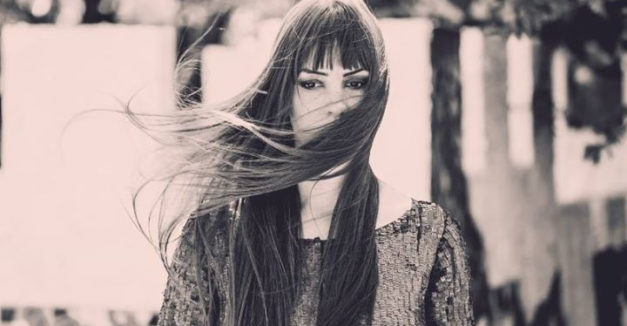Emma Ruth Rundle
Tickets: $10 ADV / $12 DOS
On sale 6/30 at 10am: http://bit.ly/2sYdZKE
ALL AGES
Doors at 7pm
It isn’t unusual for artists to glean inspiration from emotional upheaval, transcending pain through a kind of mental osmosis, so that the turmoil in their lives provides the fuel for their artistic fire. Only some, however, lay bare the open nerves of their suffering, inviting the listener to experience raw emotion with them, in real time. By exposing vulnerabilities within themselves so fragile that their music itself somehow embodies their own personal discomfort, they create an auditory experience verging on total catharsis, for artist and audience alike. Emma Ruth Rundle is just such a musician. Her second solo album, Marked for Death, mines feelings of loss, defeat, heartache and self-destructiveness to emerge with the most honest and compelling accomplishment of an already prolific career.
A more adventurous production than 2014’s solo debut Some Heavy Ocean, the eight compositions on Marked for Death, helmed by engineer/co-producer Sonny DiPerri, emphasize dynamics and vocal melodies, variable tuning, and a dense layering and texturing of guitars. Nevertheless, fear and self-doubt linger in the shadows of Rundle’s mind, providing an incessant counterpoint to her ambitious talent and sultry, albeit de-emphasized, allure. As she explains, “There is intentionally nothing to hide behind here, but at the same time I’m terrified of revealing myself.” Clarifying this she continues, “The subject matter is largely about being defeated and shrunken into the base human themes of love and loss. It’s a far cry from high art. It’s very much from the dirt.” Exemplified by the candid, unglamorous cover portrait, the album makes a persuasive argument for its creator’s utter helplessness in the shadow of defeat. And though a potent dose of dark, hypnotic rock every bit as satisfying as her work with Marriages and Red Sparowes, Marked for Death’s most resonant element is Rundle herself, settling-in to her role as singer/songwriter. Her rich voice, alternately jostled and cradled by the sounds conjured from her guitar, feels more present, perhaps even more deliberate, than ever before. Written over the space of a few months holed-up at The Farm, Sargent House’s desert outpost/recording studio outside Los Angeles, the songs on Marked for Death reflect the investigative, occasionally improvised nature of writing and, eventually, recording at the site. The studio’s dirty electricity necessitated going direct for most of the guitar tracks. “Because of the direct input set up,” Rundle explains, “I had a lot more time to get very textural with the electric guitars, so there are many layers.” With unlimited time and space, discovery itself became part of the songwriting process.
Opening track “Marked for Death” stirs quietly at first. Its past-tense treatise on doomed love and the despair of abandonment soon blooms, however, into a cascading murmuration of guitar and strings, its towering, epic presence characteristic of much of Rundle’s work. “Protection”, perhaps not coincidentally, constructs a wall of volume around itself. The flashes of Rundle’s vulnerability and haunting melody of her vocals in turn spark great washes of guitar noise that mushroom into existence like some sonic thunderhead. Dusted with acoustic guitars, “Medusa” spins a churning landscape of reverb and shadow, a broad canvas for the impassioned brushstrokes of her voice, while “Hand of God”, a resolute contemplation on living with shame, incorporates a sleepy kind of blues that flickers momentarily before fading away. “Heaven” and “So, Come” grapple with themes of suffering and yearning for the past, transforming from furtive whispers into overdriven burners, and back again. What begins as the album’s most restrained moment, “Furious Angel”, withers only momentarily from the specter of dying love, the quickening floor toms – present across much of the record – eventually splashing their way through a layer of crystalline cymbals. The dark thrum of stripped-down closing track “Real Big Sky” is accompanied by one of Rundle’s most bittersweet lyrics, and a breathtaking performance. The only song on the album included in its original demo form, its unexpected resolve delivers an abrupt, sobering finish.




